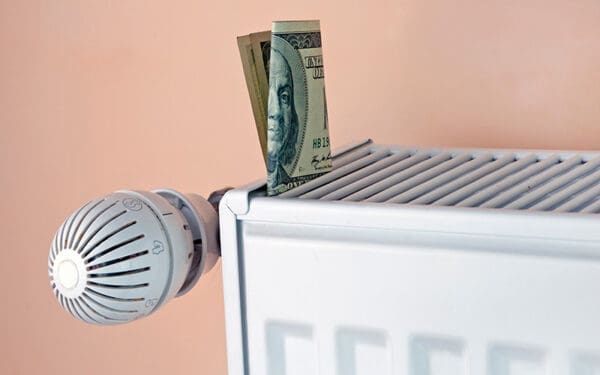Since Sean Mahoney, CLF’s Executive Vice President, and his wife put a rooftop solar panel system on their barn, they’ve noticed a huge difference in their energy bills. All told, their annual energy costs have decreased by up to 80 percent!
They live in an old farmhouse in Southern Maine. During the spring and into the early fall, their electricity bill is zero. In fact, they’re actually making money through a process known as net metering – getting credit from the electric company for the extra energy their panels produce during the summer, which they can then use to cover times of year when their solar panels produce a bit less energy.
Where They Started: Hot Water
Ten years ago the Mahoneys put in a solar hot water system. They had three teenagers, who (like most teenagers) took long daily showers. Heating up all that water used a lot of electricity, pushing their bills through the roof. So they installed a solar-powered hot water system, and were able to bring their electric bills back down to a reasonable level over the years.
When it was time to reshingle the roof on their barn four years ago, they realized it was the perfect time to think about adding solar panels to power the rest of their home as well.
Why Rooftop Solar?
For the Mahoneys, installing solar panels was about both saving money on electricity and reducing their carbon footprint. New England currently relies on climate-damaging fossil fuels like oil and gas for energy. Adding solar panels to their house allows the Mahoneys to use clean energy to power their home, reducing their use of dirty fossil fuels. It also lets them add a bit of clean energy back to the grid and get credit on their electricity bill for it. Critically, it’s a way for them to personally fight back against climate change.
They liked the solar panels because they’re simple, and don’t require any real maintenance. They haven’t had to do anything to maintain the rooftop solar panels or the solar hot water heater – no clearing leaves in the fall or snow in the winter, as it all falls right off. And being able to generate their own power is a great feeling.
“By reducing your use of energy, you’re helping your kids and your grandkids, with respect to what their environment is going to look like in 20, 30, 100 years,” says Sean.
Watch the video to see the Mahoneys rooftop solar system in action. Then share this video, and commit to considering solar panels and supporting good solar legislation by signing our fight for solar pledge.
(An earlier version of this post ran in March 2019)



